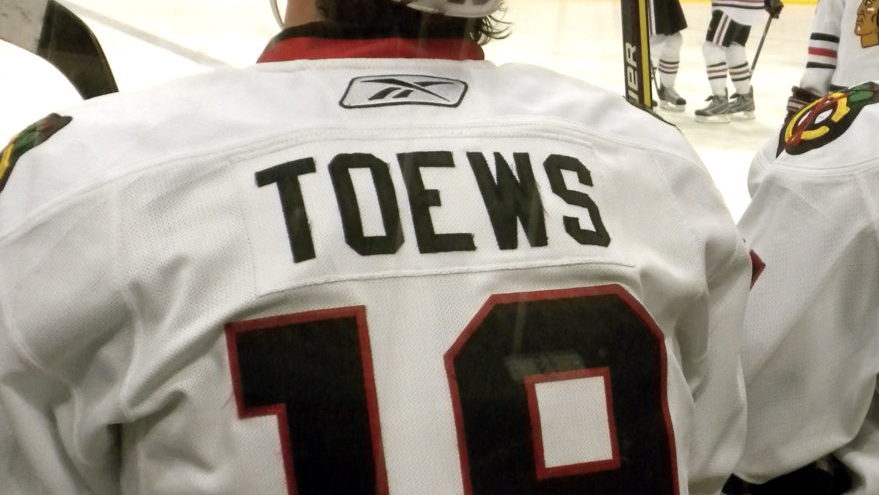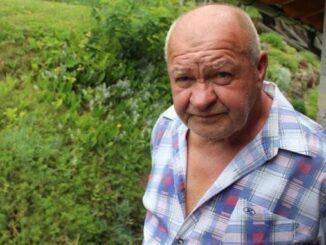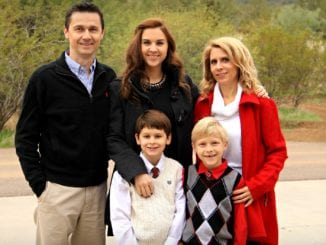
As Mennonites, most of us can relate to the English saying our surnames in a wide variety of abominations. Heck, even some Mennonites say their own last names incorrectly. In order to address this problem, The Daily Bonnet has created this handy guide to the most commonly mispronounced Russian Mennonite surnames. (Okay, well, this is how we say them on the East Reserve anyway.)
Baerg – Berg. Think mountain.
Braun – Believe it or not, this is usually said Brown, just like the colour. Some Mennos have even taken to spelling it that way. For shame.
Broesky – Bray-skee.
Bueckert – There is some debate about this one. Around here we all say it ‘B-yoo-kert.’ Some folks say it ‘Bickert’. It’s definitely not ‘Buckert’ or ‘Buickert’.
Buhler – Think Ferris Bueller. It’s said the same way. B(you)-ller. Not Buller.
Doerksen – Usually any surname with an ‘oe’ is said ‘ay’. This name offers a slight variation on the ‘oe’ rule. In this case it’s not Dorkson (although, that’s a fun way to say it) or ‘Dayrksen’ but ‘Dirksen’.
Driedger – Dreed-jer.
Dyck, Dick, Dueck– No matter how it’s spelled, you have to say this “dick.” Those who say their name Doo-eck are just embarrassed. Instead they should gladly embrace the “dick” pronunciation.
Fehr – Ever since old Mr. Fehr opened up that used car lot and wanted people to know you would be treated well, this name has been pronounced ‘Fair’. Not Fear, Ferr or Furr.
Friesen – I think most people get this one right. It’s ‘freezin’. It’s counterpart on the other hand….
Froese – This one is properly said ‘Frays’ but it’s much more fun to say it ‘froze’…especially on the cold Canadian prairies.
Fuchs – Be careful with this one! There is no ‘ch’ sound here. It does end like a ‘cks’. However, the ‘u’ sound is more the ‘oo’ in the word ‘books’. So, this one is like ‘Fooks’ but as you’d say that if it rhymed with ‘books.’
Giesbrecht – Not guys-brekt or geeze-brecht, but geese-brekt. Think Canada Geese.
Goertzen, Goerzen – So much for the supposed ‘oe’ rule, because around these parts we don’t say it Gayrtzen. Instead this is Gurt-zen, whether it has a T in the spelling or not.
Groening – This is not as common as some of the other names, though you can find a few Groenings in the Steinbach Pioneer cemetery if you look for them. Around here, this one strictly follows the ‘oe’ rule. This is ‘Grayning’. Just ask Matt. ‘Greening’ is also acceptable. Avoid ‘Groaning’
Guenther – Like ‘Bueckert’ the ‘ue’ is probably properly said like an ‘i’. So this one is often ‘Ginter’ (and some people spell it this way, too.) It’s also very common to say it ‘Gun-ther’.
Heinrichs – Hine-ricks
Hiebert – Not Hibbert or Hi-bert. This is Hee-bert.
Hoeppner – Another variation on the ‘oe’ rule. Not Hope-ner. Not even ‘Haypner.’ This one is ‘Heppner’.
Jantzen, Jansen – In most Plautdietsch dictionaries, the “J” is used to make a “Y” sound. However, with surnames, it’s usually like a J. So this is pronounced (hardJ)ant-sen not Yant-sen.
Kehler – The ‘eh’ is close, but not exactly, as it is in Fehr. Instead it’s more like ‘Kayler.’ Definitely not Keller.
Klassen, Clausen, etc. – The ‘Clausen’ spelling makes it much more obvious how this should be said. It’s ‘Claw-sen’ not ‘Class-en’.
Kliewer – Cleaver. Like ‘Leave it to Beaver.’
Krahn – Not Crayon. Not Kran. This is Krawn.
Kroeker – Again, anything with an ‘oe’ in it is properly said “ay”. Therefore the proper pronunciation here is “krayker” not “kroker.” After all, many of these fine folks are still living.
Loeppky – Not quite the proper ‘ay’ sound it should be with the ‘oe’ in there. Instead this is more like Lepp-key.
Loewen – The real way to say this is ‘lay-ven’ but very few people, even old school Mennonites, say it that way. Most people say this ‘Low-wen.’ They’re all wrong, of course, but that’s okay. It’s allowed.
Neufeld– New-feld
Penner – Said with the proper Plautdietsch accent, this one is ‘Panna’.
Quiring – Queer-ing not Choir-ing
Reimer – As many a Mennonite joke can attest this ubiquitous surname is pronounced ‘Rhymer’ not ‘Reemer.’
Schroeder – This is not the character from the Peanuts cartoons, so say this one ‘Shrayder’ not Schroder.
Stoesz – Among Mennonites, most of us like to add a ‘sh’ sound even when it doesn’t look like it. This one is usually ‘shtace’ if you’re a Plautdietsch speaker, or ‘Stace’ if you’re not.
Teichroeb – Tike-robe
Thiessen – For some reason, back in the day, Mennonites had trouble making a ‘th’ sound, so this one is pronounced ‘Teesen.’ You don’t have to make the ‘th’ sound.
Toews – Just ask Miriam, Jonathan, or Vic about this one. It’s pronounced ‘Taves’ not ‘Toes.’ Get it right, people!
Unger – There are a few ways people like to butcher the G on this one. Some say this like it rhymes with ‘plunger’ or a soft G like in the word ‘sing’ (ie. ung-er’). But this has got to be said Ung-ger with a hard G. Rhymes with Hunger.
Vogt – The G is silent. This is Vote…even though good Mennonites don’t.
Wiebe – This one is deceptively simple. It’s ‘Weeb’. All one syllable. Not Wee-bee.




